Speakers also sought repeal of the Waqf Amendment Act and addressed broader socio-political issues affecting minorities
NEW DELHI/MADURAI — In a powerful display of unity and assertion, the Manithaneya Makkal Katchi (MMK), under the leadership of its president and MLA Prof Dr MH Jawahirullah, staged a massive rally and public conference in Madurai on Sunday. The event was aimed at raising urgent demands for fair political representation of Muslims in legislative bodies and the repeal of the controversial Waqf Amendment Act, 2025. It also addressed broader socio-political issues affecting minorities, secularism, and democratic institutions in the country.
The rally, stretching four kilometres from PC Perungayam junction to Amma Thidal near Vandiyur Toll Plaza, drew thousands of supporters who marched with party flags, banners, and placards. Slogans echoing demands for justice, protection of Waqf properties, and Muslim empowerment filled the air.
Addressing the sea of supporters at the South Zone Public Conference, Prof Jawahirullah declared, “Our struggle is not for power. It is to protect secularism, defend minority rights, and ensure inclusive governance.” He criticised the Waqf Amendment Act as unconstitutional and alleged that it was “designed to dismantle minority institutions and loot their assets through tools like the Umeed portal.”
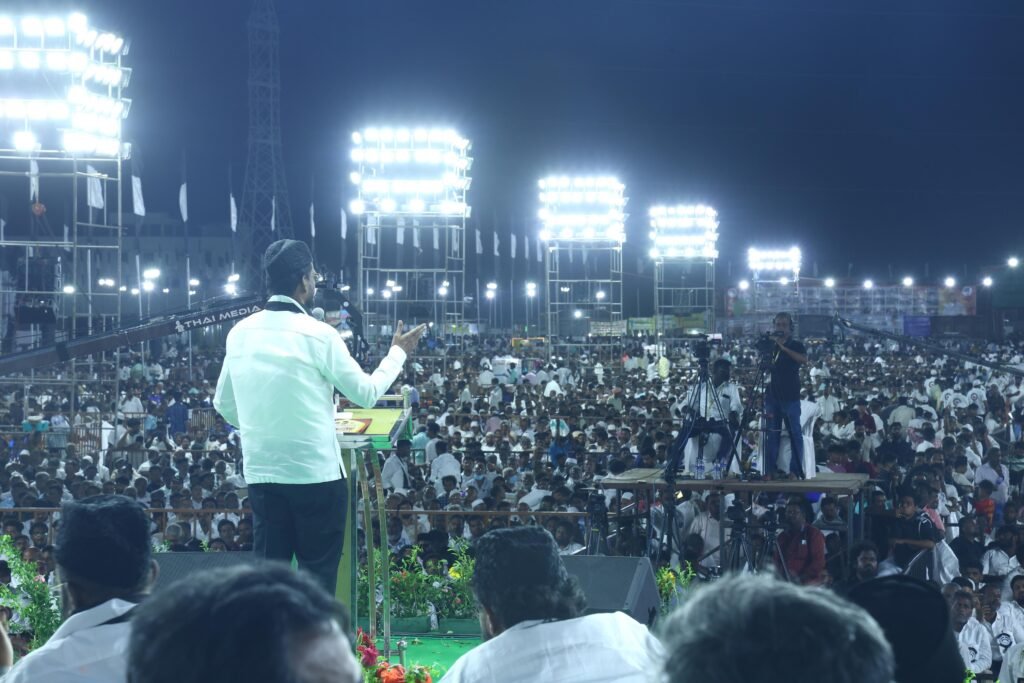
He highlighted the glaring under-representation of Muslims in Indian politics, pointing out that though Muslims constitute over 16% of the country’s population, they account for just 24 MPs in the 2024 Lok Sabha. “We should have at least 80 Muslim MPs in the Lok Sabha. Even in the Chennai Corporation, where Muslims form nearly 10% of the population, only four of the 200 councillors are Muslim,” he said, calling upon all parties — including DMK, Congress, and AIADMK — to address this democratic imbalance.
Prof Jawahirullah also launched a scathing attack on the recent amendments to the Waqf Act, claiming that they were aimed at dispossessing Muslim communities of their endowments. “The BJP government is using the so-called Umeed Portal as a tool to usurp Waqf assets. If the Act is not repealed, we are ready to launch a mass protest on the scale of the farmers’ agitation,” he warned.
Retired IPS officer and noted author Abdur Rahman, speaking as a chief guest, brought academic weight and historical context to the discussion. Referencing his book “Absent in Politics and Power: Political Exclusion of Indian Muslims”, he noted that Muslims have consistently faced political deprivation in post-independence India.
“In 17 Lok Sabha elections from 1952 to 2019, Muslim MPs constituted only 5.78% of the strength. In 2024, we have just 25 Muslim MPs, far below the 78 seats that should reflect our population share,” Rahman said. “That is 70% deprivation. And when we are underrepresented, our voices are not heard. Our issues—whether it’s the CAA, triple talaq, or the Waqf Act—are ignored or legislated over without opposition.”
Rahman gave a detailed account of Muslim representation in Tamil Nadu. Despite being 6% of the state population, Muslims have elected only 93 MLAs across 16 assembly elections out of a total of 3,644—just 2.55%. “Muslims in Tamil Nadu deserve 193 MLAs to match their population share, but have only received half that. This is a state that gave birth to the Justice Party, Periyar’s self-respect movement, and affirmative action. If Muslims are under-represented even here, it is a serious concern,” he added.
He emphasised that major political parties often sideline Muslim candidates. “They are rarely given high-profile ministries like home, finance, or industries, even when elected.”
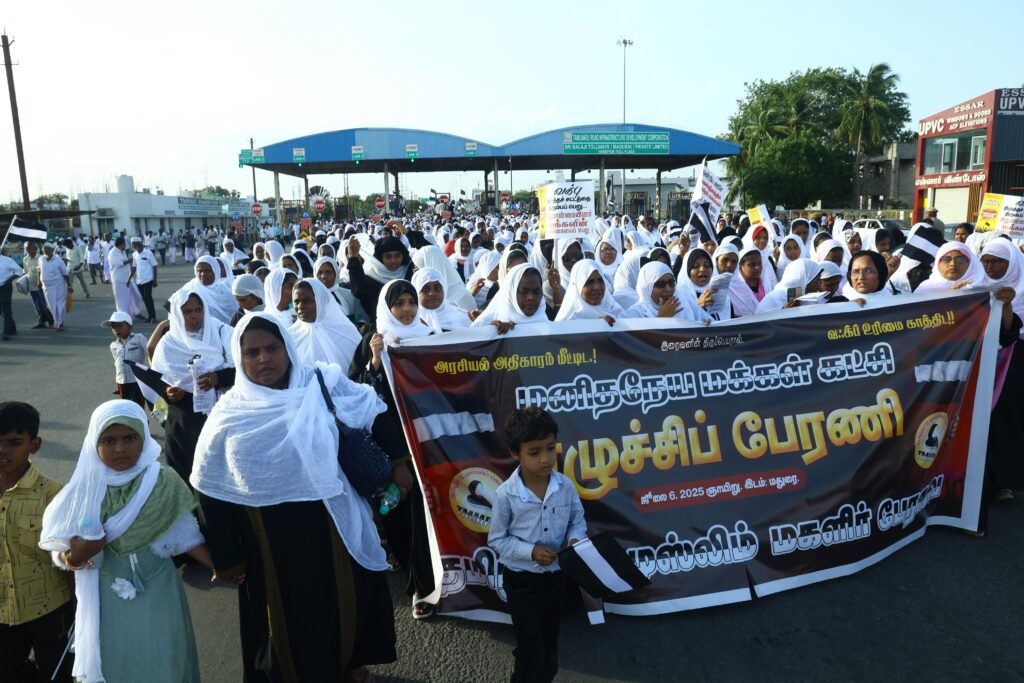
Muslim Political Identity: A New Phase?
Reflecting on the broader question of Muslim political identity, Rahman asserted that a separate Muslim political platform is no longer a distant idea but a growing necessity. “A Muslim party must stand for all deprived sections, support secular values, and work for human rights, farmers, Dalits, and labourers. It must uphold the Constitution and remain grounded in people’s issues,” he said.
In this context, Rahman described MMK as a potential model for the rest of the country. “MMK works for Dalits, OBCs, farmers, youth, and labourers, while keeping its focus on Muslims. It is part of the secular alliance and is rooted in democratic values. This is the kind of politics that can empower the Muslim community without isolating it.”
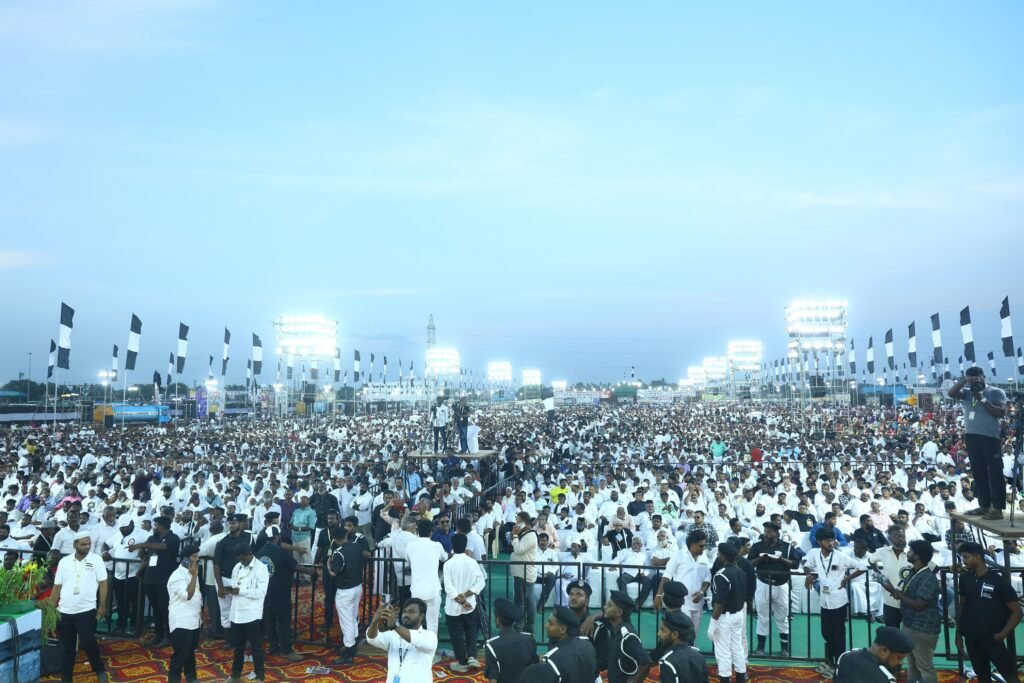
Role of Secular Alliances
Both Rahman and Jawahirullah criticised secular parties for failing to reciprocate Muslim political support with real representation. “Muslims vote overwhelmingly to defeat communal forces. It is time for secular parties to reciprocate that trust,” Rahman urged. “Give Muslims their due share of tickets and ensure they’re entrusted with significant governance roles.”
Referring to Tamil Nadu’s social justice legacy, Rahman reminded the audience of the 1921 Communal GO issued by the Justice Party, which laid the groundwork for reservations in government jobs and education. He traced this legacy through Periyar’s agitations, which led to the First Constitutional Amendment in 1951.
“Periyar was not anti-religion—he was anti-exploitation. He fought for equality and justice, and we must honour that legacy today by ensuring all deprived communities, including Muslims, have a voice in governance,” he said.
Growing Political Awakening
The rally and conference marked not just a protest but also a political awakening for many. As MMK reasserts its place in Tamil Nadu’s secular alliance, the event sent a strong signal to national and regional parties that minority voices can no longer be sidelined.
The adopted resolutions reflected a broader intersection of concerns, ranging from communal harmony and electoral integrity to international human rights and local cultural preservation. The speakers did not mince words in holding governments accountable, both at the state and central levels.
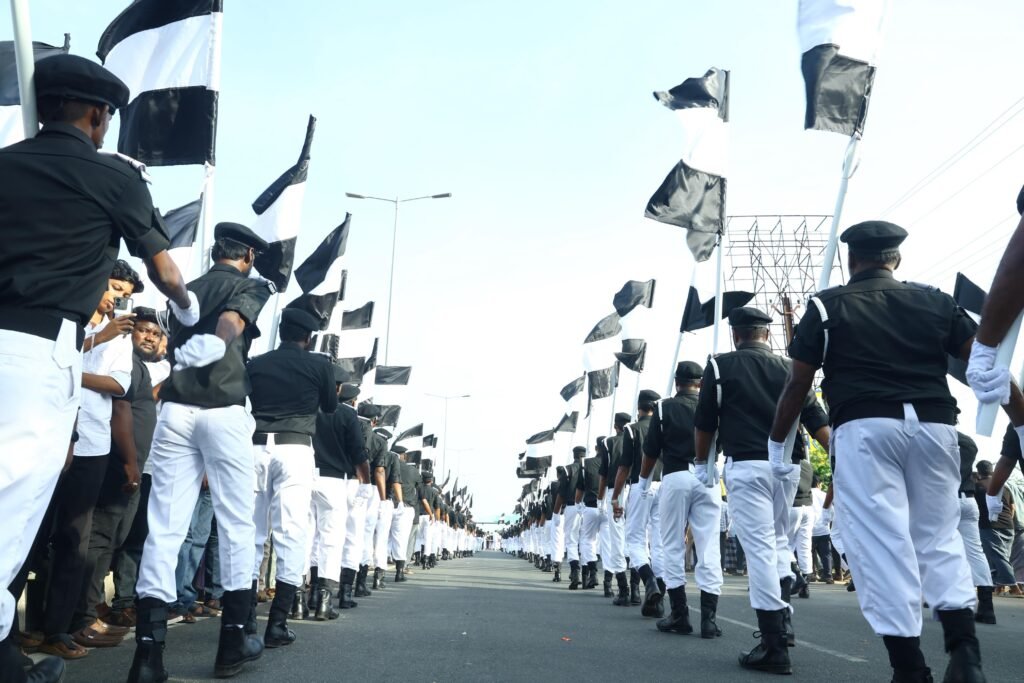
Minority Concerns
The conference culminated in the unanimous passage of nine resolutions, covering a broad spectrum of issues faced by Muslims and other marginalised communities in India:
• Proportional Political Representation
The resolution demanded amendments to the Representation of the People Act to ensure proportionate representation of Muslims in Parliament, state assemblies, and local bodies. Current figures reveal deep disparities, with only 296 of the 4,123 MLAs nationwide being Muslim, forming just 7.18%.
• Repeal of the Waqf Amendment Act, 2025
The Act was condemned as unconstitutional and exploitative, and participants demanded its immediate repeal, along with cessation of coercive registration mandates through the Umeed Portal.
• Reservation in the Private Sector
With privatisation absorbing much of the employment market, the MMK urged the Tamil Nadu government to enact legislation ensuring reservations in private enterprises.
• Abolition of EVMs
Questioning the credibility of electronic voting machines, MMK demanded a return to paper ballots, citing investigative reports that raised serious doubts about vote count accuracy.
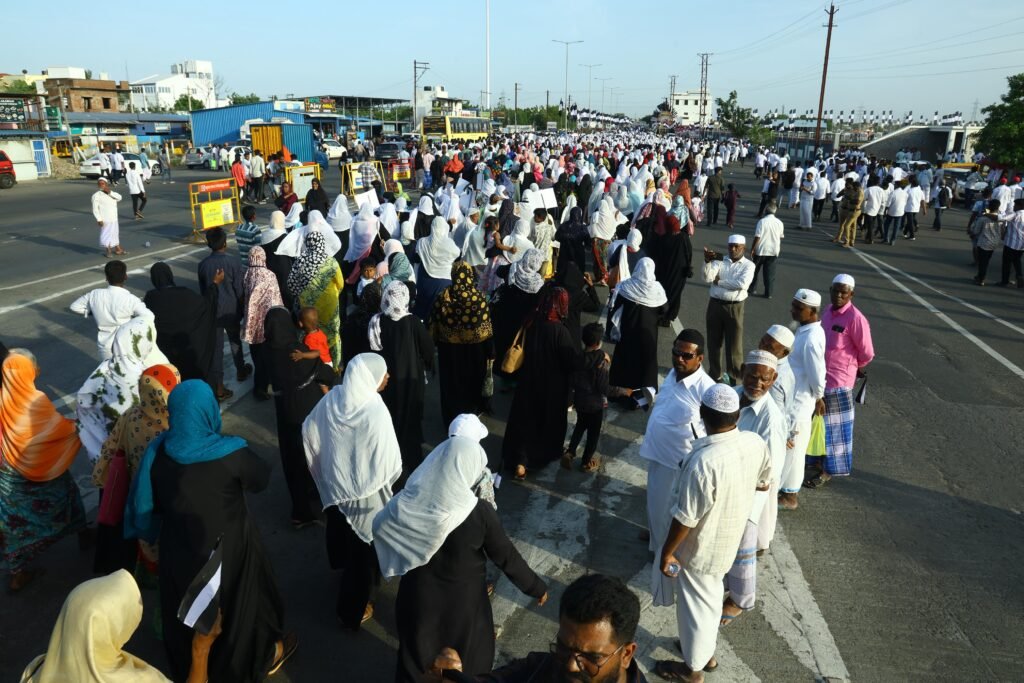
• End the Genocide in Palestine
The MMK condemned Israel’s ongoing offensive in Gaza, which has reportedly claimed over 57,000 lives since October 2023, and criticised the Indian government’s silence and its continued trade and defence relations with Israel.
• Condemnation of VP Dhankhar’s Remarks
Vice President Jagdeep Dhankhar’s suggestion to drop the words “Secular” and “Socialist” from the Constitution was described as an attack on the very spirit of India’s democracy.
• Removal of Communal Content in Textbooks
Alleging anti-Muslim bias in Tamil university textbooks, MMK demanded the immediate removal of derogatory material, especially in history chapters on Muslim rule.
• Justice for Muslim Undertrials
Citing instances of torture and abuse against undertrial prisoners — Bakruddin, Bilal Malik, and Panna Ismail — in Puzhal Central Prison, the resolution demanded action against erring officials and called for bail to be granted.
• Protection of Thirupparankundram Dargah
Attempts to alter the status of the historical Sikandar Auliya Dargah were termed illegal. MMK demanded that the state government uphold the Places of Worship Act, 1991, and improve access to the site.
With the country passing through a politically sensitive phase, the Madurai rally served as a reminder that the call for justice, representation, and democratic integrity remains alive—and growing louder.

